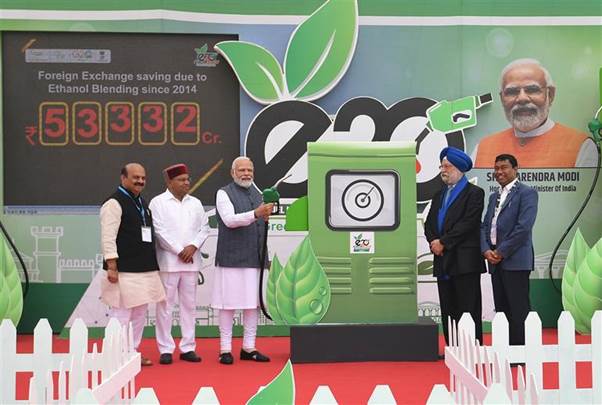
Claim denied? E20 Fuel Rollout Faces Insurance Roadblock Over Engine Damage Risks
On August 8, motor insurer ACKO publicly stated that using the wrong fuel could void claims.
India’s push for greener fuels could be hitting an unexpected speed bump — the insurance sector. Some insurers have warned they may reject claims if an engine fails after using E20 petrol in vehicles not designed for it.
The government’s ethanol blending programme, hailed by policymakers as a win-win for farmers, the environment, and energy security, is drawing resistance from both automakers and vehicle owners. While the Centre aims for nationwide availability of E20 — a blend of 80 percent petrol and 20 percent ethanol — by 2025–26, concerns are emerging over its compatibility with the bulk of India’s existing vehicle fleet.
A recent Moneycontrol report noted that many automakers have cautioned about the technical risks of using E20 in vehicles built for E10 — which contains just 10 percent ethanol. Those risks are now being echoed by insurers.
On August 8, motor insurer ACKO publicly stated that using the wrong fuel could void claims. Responding to a user query on X, ACKO clarified: “In case of engine failure due to incorrect fuel usage, the claim would not be admissible. This falls under gross negligence as per our policy terms.”
While Union ministers Hardeep Singh Puri and Nitin Gadkari have insisted there are no proven cases of E20 causing vehicle damage, anecdotal evidence from consumers and data from surveys point to a more complex picture. A LocalCircles survey found that petrol vehicles running on E20 reported mileage drops exceeding 10 percent.
One senior general insurance executive, speaking on condition of anonymity, explained that ethanol burns cleaner than petrol but produces less energy — pure ethanol has about 30 percent lower energy content. This, he said, inevitably impacts mileage. Over time, prolonged use in non-compliant engines can also cause mechanical damage.
Technical concerns include ethanol’s tendency to absorb moisture, leading to “phase separation” in fuel tanks, where water-laden ethanol settles at the bottom. This can corrode metal components, cause rust, and degrade rubber parts such as fuel lines, seals, and gaskets — especially in older, E10-compliant vehicles.
E20-compliant vehicles, in contrast, are built with ethanol-tolerant coatings and corrosion inhibitors, and their engines are calibrated for the correct air–fuel mix. Still, these models require periodic replacement of rubber parts to maintain performance.
For insurance customers, the critical issue is whether existing motor policies will cover damage caused by E20 in E10 vehicles. Even “Engine Protection Plus” add-ons, which cover failures due to water ingress or oil leakage, may not apply if incorrect fuel usage is deemed the root cause.
Most vehicles sold in India before 2023 — such as the 2018 Maruti Suzuki Swift or 2019 Hyundai i20 — are E10-compliant. Examples of E20-ready models include the 2024 Honda City and 2023 Toyota Hyryder.
India’s ethanol blending programme began in 2006 with 5 percent ethanol. The original target of 20 percent by 2017 was missed due to supply and infrastructure challenges. The revised 2025–26 goal now appears within reach — but unless the insurance and auto sectors align with the government’s environmental ambitions, the road to greener fuels may get bumpier.
